OXCQ 200 Tablet 10's
MRP ₹66.5
(Inclusive of all Taxes)
₹10.0 Cashback (15%)
Provide Delivery Location
Online payment accepted
 Prescription drug
Prescription drugWhats That
Composition :
Manufacturer/Marketer :
Consume Type :
Expires on or after :
Return Policy :
NPPA :
About OXCQ 200 Tablet
OXCQ 200 Tablet belongs to the class of 'anti-inflammatory drugs.' It has various medical uses, including treatment for type 2 diabetes mellitus, acute or chronic rheumatoid arthritis, dyslipidaemia (abnormally elevated cholesterol levels), systemic and discoid lupus erythematosus (autoimmune disease), polymorphous light eruption (a rash caused by sun exposure), and malaria.
OXCQ 200 Tablet contains Hydroxychloroquine, an anti-inflammatory drug. For diabetes, it works by improving insulin sensitivity and increasing insulin secretion. In rheumatoid arthritis, Hydroxychloroquine acts as a mild immunosuppressant and disease-modifying anti-rheumatic agent and inhibits the production of rheumatoid factor. It also decreases the severity of skin lesions in systemic and discoid lupus erythematosus. In malaria, it works by increasing the concentration of a toxic compound in the parasite that leads to its death.
Take this medicine as prescribed by a doctor. OXCQ 200 Tablet may cause common side effects like blurred vision, abdominal pain, nausea, vomiting, loss of appetite, diarrhoea, headache, mood changes, skin rashes, itching, sensitivity to light, and pigmentation disorders. These side effects are not familiar to everyone and may vary individually. If you notice any side effects that are not manageable, please consult your doctor.
Before taking OXCQ 200 Tablet , please inform your doctor if you are allergic to medicines, liver/kidney/heart diseases, gastrointestinal problems, blood disorders, and brain-related problems. Pregnant and breastfeeding women should consult their doctor before starting OXCQ 200 Tablet . OXCQ 200 Tablet may cause blurred vision; hence do not drive or operate machinery until you feel better. The safety and efficacy of OXCQ 200 Tablet have not been established in children; please seek medical advice for more information.
Uses of OXCQ 200 Tablet
Directions for Use
Key Benefits
Hydroxychloroquine has diversified medical uses and works by reducing inflammation in people with autoimmune diseases. It helps treat type 2 diabetes mellitus and autoimmune conditions like rheumatoid arthritis, systemic lupus erythematosus, and malaria. For diabetes, it works by improving insulin sensitivity and increasing insulin secretion. In rheumatoid arthritis, Hydroxychloroquine acts as a mild immunosuppressant and disease-modifying anti-rheumatic agent and inhibits the production of rheumatoid factor. In malaria, it works by increasing the concentration of a toxic compound in the parasite that leads to its death. Hydroxychloroquine is an anti-thrombotic and anti-platelet agent that helps reduce abnormally elevated cholesterol levels. It also decreases the severity of skin lesions in systemic and discoid lupus erythematosus.
Storage
- Drink water or other clear fluids.
- To prevent worsening of pain, limit intake of tea, coffee, or alcohol.
- Include bland foods like rice, toast, crackers, and rice in your diet.
- Avoid lying down immediately after eating as it may cause indigestion or heartburn.
- Avoid acidic and spicy food as it may cause indigestion.
- Inform your doctor about the nausea and discuss possible alternatives to the medication or adjustments to the dosage.
- Divide your daily food intake into smaller, more frequent meals to reduce nausea.
- Opt for bland, easily digestible foods like crackers, toast, plain rice, bananas, and applesauce.
- Avoid certain foods that can trigger nausea, such as fatty, greasy, spicy, and smelly foods.
- Drink plenty of fluids, such as water, clear broth, or electrolyte-rich beverages like coconut water or sports drinks.
- Use ginger (tea, ale, or candies) to help relieve nausea.
- Get adequate rest and also avoid strenuous activities that can worsen nausea.
- Talk to your doctor about taking anti-nausea medication if your nausea is severe.
- Record when your nausea occurs, what triggers it, and what provides relief to help you identify patterns and manage your symptoms more effectively.
- Eat well-cooked food to minimize infection risk.
- Practice good hand hygiene to prevent infections.
- Avoid crowds and people with illnesses to reduce exposure.
- Wear a mask when necessary to lower infection risk.
- Rest adequately to support your body's healing process.
- Stay hydrated by drinking plenty of water.
- Regularly monitor blood cell counts for changes.
- Seek immediate medical help if symptoms like fever, chills, or fatigue occur.
- Consult your doctor right away if concerning symptoms arise.
- Follow your doctor's guidance on managing myelosuppression and infection prevention.
- Include fruits, vegetables, and whole grains in your diet.
- Exercise regularly.
- Quit smoking as it may increase the risk of neuropathy.
- Getting massage therapy and acupuncture might help with pain.
- Rest well; get enough sleep.
- Eat a balanced diet and drink enough water.
- Manage stress with yoga and meditation.
- Limit alcohol and caffeine.
- Physical activities like walking or jogging might help boost energy and make you feel less tired.
- Report the itching to your doctor immediately; they may need to change your medication or dosage.
- Use a cool, damp cloth on the itchy area to help soothe and calm the skin, reducing itching and inflammation.
- Keep your skin hydrated and healthy with gentle, fragrance-free moisturizers.
- Try not to scratch, as this can worsen the itching and irritate your skin.
- If your doctor prescribes, you can take oral medications or apply topical creams or ointments to help relieve itching.
- Track your itching symptoms and follow your doctor's guidance to adjust your treatment plan if needed. If the itching persists, consult your doctor for further advice.
- Inform Your Doctor: Notify your doctor immediately about your diarrhoea symptoms. This allows them to adjust your medication or provide guidance on managing side effects.
- Stay Hydrated: Drink plenty of fluids to replace lost water and electrolytes. Choose water, clear broth, and electrolyte-rich drinks. Avoid carbonated or caffeinated beverages to effectively rehydrate your body.
- Follow a Bland Diet: Eat easy-to-digest foods to help firm up your stool and settle your stomach. Try incorporating bananas, rice, applesauce, toast, plain crackers, and boiled vegetables into your diet.
- Avoid Trigger Foods: Steer clear of foods that can worsen diarrhoea, such as spicy, fatty, or greasy foods, high-fibre foods, and dairy products (especially if you're lactose intolerant).
- Practice Good Hygiene: Maintain good hygiene to prevent the spread of infection. To stay healthy, wash your hands frequently, clean and disinfect surfaces regularly, and avoid exchanging personal belongings with others.
- Take Anti-Diarrheal Medications: If your doctor advises, anti-diarrheal medications such as loperamide might help manage diarrhoea symptoms. Always follow your doctor's directions.
- Keep track of your diarrhoea symptoms. If they don't get better or worse or are accompanied by severe stomach pain, blood, or dehydration signs (like extreme thirst or dark urine), seek medical help.
Drug Warnings
Before using OXCQ 200 Tablet , inform your doctor if you have recently used any prescription and non-prescription medications. Keep your doctor informed of your medical history before starting OXCQ 200 Tablet . Please seek medical advice if you are pregnant or breastfeeding before taking OXCQ 200 Tablet . This medicine may cause blurred vision; hence drive or operate machinery only when you are alert and have clear vision. Avoid alcohol consumption while being treated with OXCQ 200 Tablet . Safety and efficacy of OXCQ 200 Tablet have not been established in children.
Drug-Drug Interactions
Drug-Drug Interactions
Login/Sign Up
Using Aurothioglucose and OXCQ 200 Tablet together can cause blood disorders and other severe side effects.
How to manage the interaction:
Taking OXCQ 200 Tablet with Aurothioglucose is not recommended, please consult your doctor before taking it. If you experience any symptoms, contact your doctor immediately. Do not discontinue any medications without first consulting your doctor.
Taking Ziprasidone and Haloperidol can increase the risk of an irregular heart rhythm.
How to manage the interaction:
Taking Ziprasidone and Haloperidol together is not recommended as it can lead to an interaction, it can be taken if advised by your doctor. However, if you experience any symptoms like sudden dizziness, lightheadedness, fainting, shortness of breath, heart palpitations, diarrhea, or vomiting, contact your doctor immediately. Do not discontinue any medications without first consulting your doctor.
Combining Cisapride and Haloperidol can increase the risk of an irregular heart rhythm.
How to manage the interaction:
Taking Cisapride and Haloperidol together is not recommended as it can lead to an interaction, it can be taken if advised by your doctor. However, if you experience any symptoms like sudden dizziness, lightheadedness, fainting, shortness of breath, heart palpitations, diarrhea, or vomiting, contact your doctor immediately. Do not discontinue any medications without first consulting your doctor.
The combined use of mirtazapine and OXCQ 200 Tablet can increase the risk or severity of irregular heart rhythms which can be severe. The risk increases in patients with a history of heart illness or electrolyte imbalance.
How to manage the interaction:
Co-administration of mirtazapine and OXCQ 200 Tablet can lead to an interaction, it can be taken if advised by your doctor. However, if you experience any symptoms like dizziness, lightheadedness, fainting, shortness of breath, or heart palpitations, consult the doctor immediately. Do not stop using any medications without a doctor's advice.
The combined use of procainamide and OXCQ 200 Tablet can increase the risk of an irregular heart rhythm.
How to manage the interaction:
Co-administration of procainamide and OXCQ 200 Tablet can lead to an interaction, it can be taken if advised by your doctor. However, if you experience any symptoms like dizziness, lightheadedness, fainting, shortness of breath, or heart palpitations, consult the doctor immediately. Do not stop using any medications without a doctor's advice.
The combined use of palonosetron and OXCQ 200 Tablet can increase the risk of an irregular heart rhythm.
How to manage the interaction:
Co-administration of palponosetron and OXCQ 200 Tablet can lead to an interaction, it can be taken if advised by your doctor. However, if you experience any symptoms like dizziness, lightheadedness, fainting, shortness of breath, or heart palpitations, consult the doctor immediately. Do not stop using any medications without a doctor's advice.
Taking pazopanib and OXCQ 200 Tablet can increase the risk of an irregular heart rhythm.
How to manage the interaction:
Co-administration of pazopanib and OXCQ 200 Tablet can lead to an interaction, it can be taken if advised by your doctor. However, if you experience any symptoms like dizziness, lightheadedness, fainting, shortness of breath, or heart palpitations, consult the doctor immediately. Do not stop using any medications without a doctor's advice.
The combined use of golimumab and OXCQ 200 Tablet can increase the risk of nerve damage.
How to manage the interaction:
Co-administration of golimumab and OXCQ 200 Tablet can lead to an interaction, it can be taken if advised by your doctor. However, if you experience any symptoms like weakness, numbness, pain, burning, or tingling in your hands, feet, or limbs, consult the doctor immediately. Do not stop using any medications without a doctor's advice.
Taking clarithromycin with OXCQ 200 Tablet can increase the risk of an irregular heart rhythm.
How to manage the interaction:
Although there is a possible interaction, clarithromycin can be taken with daclatasvir if prescribed by the doctor. Consult the prescriber immediately if you experience sudden lightheadedness, dizziness, fainting, shortness of breath, or heart palpitations during treatment with these medications. Do not discontinue the medication without consulting a doctor.
Taking cyclosporine and OXCQ 200 Tablet can increases the blood levels of ciclosporine.
How to manage the interaction:
Co-administration of cyclosporine and OXCQ 200 Tablet can lead to an interaction, it can be taken if advised by your doctor. However, if you experience any unusual symptoms contact your doctor immediately. Do not stop using any medications without first talking to your doctor.
Drug-Food Interactions
Drug-Food Interactions
Login/Sign Up
Diet & Lifestyle Advise
- Maintain a fibre-rich diet and include fruits, vegetables and whole grains to maintain your blood glucose levels.
- Eat at regular intervals.
- Keep a check on your weight and exercise regularly to keep your heart healthy.
- Notice and manage the early symptoms of high/low blood sugar levels.
- During malarial fever, the patient may experience appetite loss. In such cases, drink glucose water, fresh fruit juices, and coconut water.
- Include high-fibre foods like green leafy vegetables and fruits to aid digestion.
- Avoid or limit the intake of alcohol and caffeine.
Side Effects of OXCQ 200 Tablet
- Blurred vision
- Abdominal pain
- Nausea
- Vomiting
- Loss of appetite
- Diarrhoea
- Headache
- Mood changes
- Skin rashes
- Itching
- Sensitivity to light
- Pigmentation disorders
Habit Forming
Therapeutic Class
All Substitutes & Brand Comparisons
RX
Brioquin 200 mg Tablet 15's
Brinton Pharmaceuticals Ltd
₹89
(₹5.34 per unit)
10% CHEAPERRX
Hqwin-200 mg Tablet 10's
Orsim Pharma
₹66.5
(₹5.85 per unit)
2% CHEAPERRX
Zy-Q 200 Tablet 30's
Zydus Healthcare Ltd
₹196
(₹5.88 per unit)
1% CHEAPER
Author Details
We provide you with authentic, trustworthy and relevant information
Drug-Diseases Interactions
Drug-Diseases Interactions
Login/Sign Up
FAQs
Drug-Drug Interactions Checker List
- TAMOXIFEN
- DIGOXIN
- AMIODARONE
- HALOFANTRINE
- MEFLOQUINE
- MOXIFLOXACIN
- AZITHROMYCIN
- PENICILLAMINE
- CICLOSPORIN
- CIMETIDINE
- AMISULPRIDE
- QUETIAPINE
- INSULIN HUMAN
Special Advise
- Let your doctor/laboratory staff know that you are taking OXCQ 200 Tablet if you undergo medical tests.
- While being treated with OXCQ 200 Tablet , your doctor may suggest ECG (electrocardiogram) to monitor your heart health.
- Your doctor may also suggest tests for blood cell counts (during prolonged therapy) and liver and kidney function tests.
Disease/Condition Glossary
Diabetes mellitus: It is also known as adult-onset diabetes, is a metabolic disease that causes high blood sugar levels. It occurs when the insulin (a hormone produced by the beta cells of the pancreas) is resistant in breaking the glucose to produce energy (insulin resistance), or the pancreas (an organ behind the stomach) produces little or no insulin at all. This disease mostly occurs in people above 40 years but can also occur in childhood based on the risk factors.
Malaria: It is a life-threatening disease caused by parasites that enter the body through a mosquito's bite. This disease usually occurs when an Anopheles mosquito (infected with the parasite 'Plasmodium') bites a healthy individual and transfers the parasite into the bloodstream. Symptoms include chills, high fever, profuse sweating, headache, nausea, vomiting, abdominal pain, diarrhoea, anaemia, muscle pain, convulsions, coma, and bloody stools.
Rheumatoid arthritis: It is an autoimmune disease (the body's immune system attacks its tissue), leading to joint pain and damage. Symptoms of rheumatoid arthritis include pain, swelling, stiffness, deformities, and loss of joint function.

Have a query?
Alcohol
Safe if prescribed
Avoid alcohol while using OXCQ 200 Tablet since it can worsen your side effects and may interfere with the working of the medicine.
Pregnancy
Consult your doctor
OXCQ 200 Tablet is not recommended during pregnancy. Please seek medical advice if you are pregnant or planning to conceive.
Breast Feeding
Consult your doctor
OXCQ 200 Tablet is not recommended during lactation since it is excreted into the breast milk. Please consult your doctor before starting OXCQ 200 Tablet if you are a breastfeeding mother.
Driving
Safe if prescribed
OXCQ 200 Tablet may cause blurry vision affecting your ability to drive or operate. In such cases, do not drive or operate machinery until you are alert and have a clear vision.
Liver
Consult your doctor
Let your doctor know if you have any history of liver diseases before using OXCQ 200 Tablet .
Kidney
Consult your doctor
Let your doctor know if you have any history of kidney diseases before using OXCQ 200 Tablet .
Children
Safe if prescribed
Safety and efficacy of OXCQ 200 Tablet have not been established in children; please seek medical advice for more information.

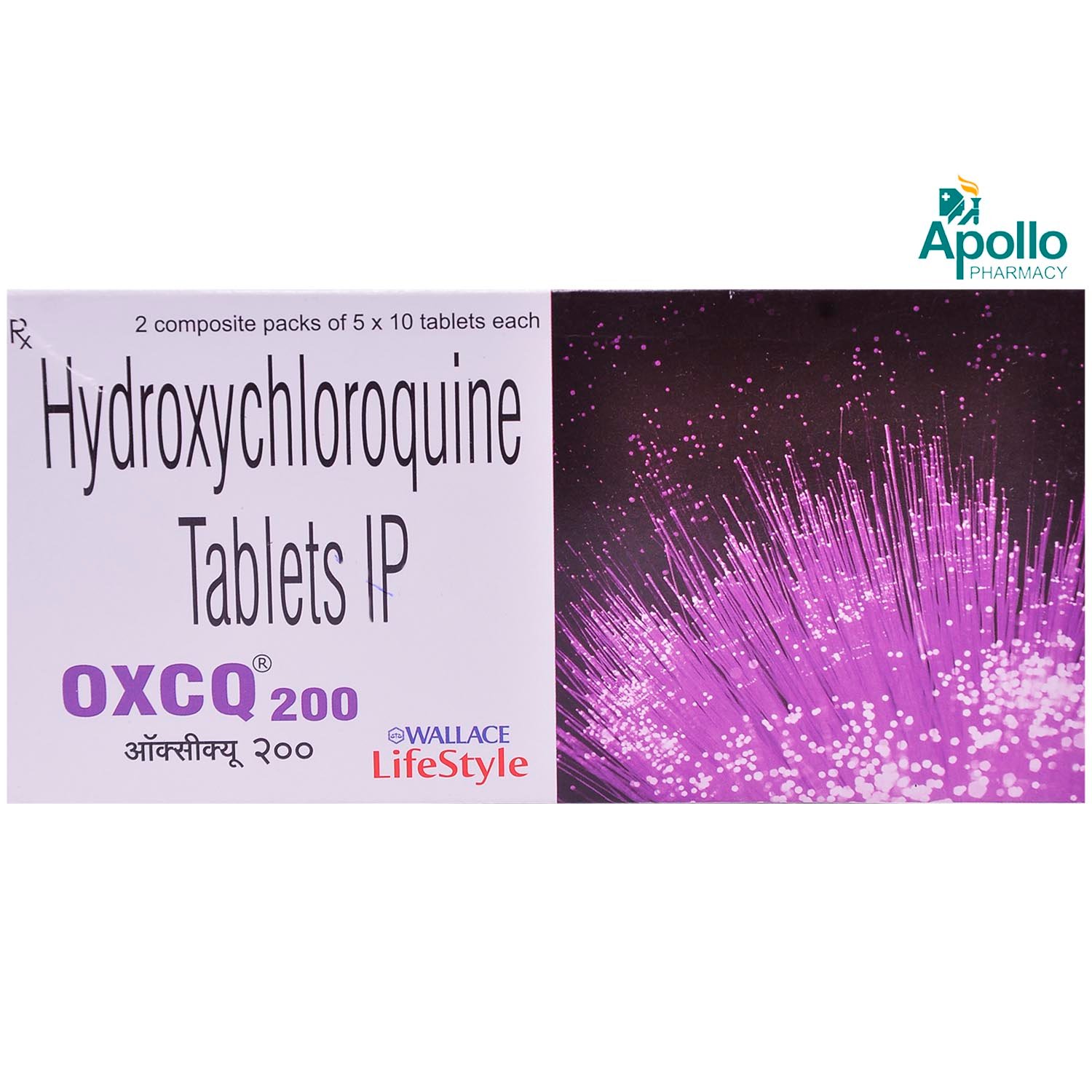
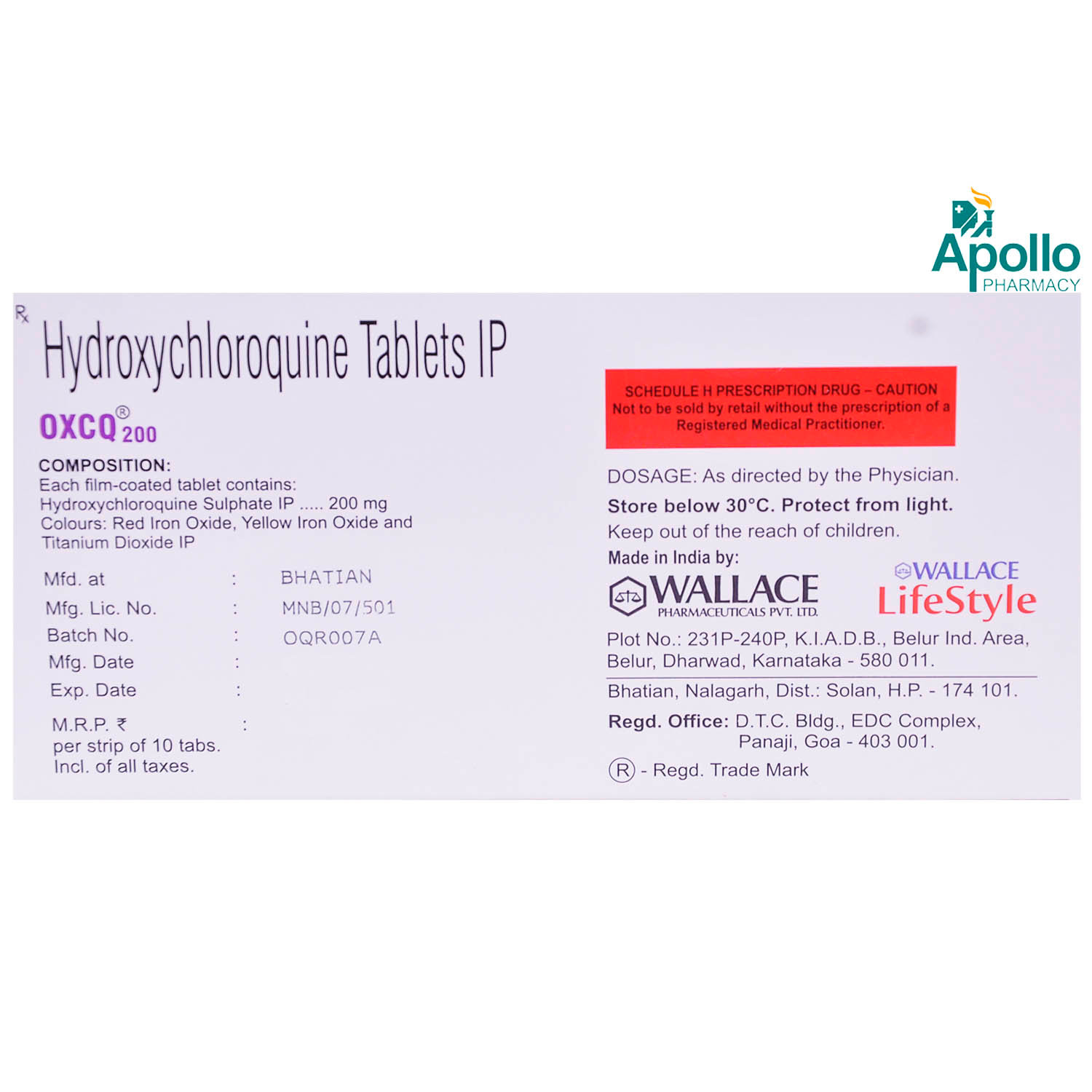
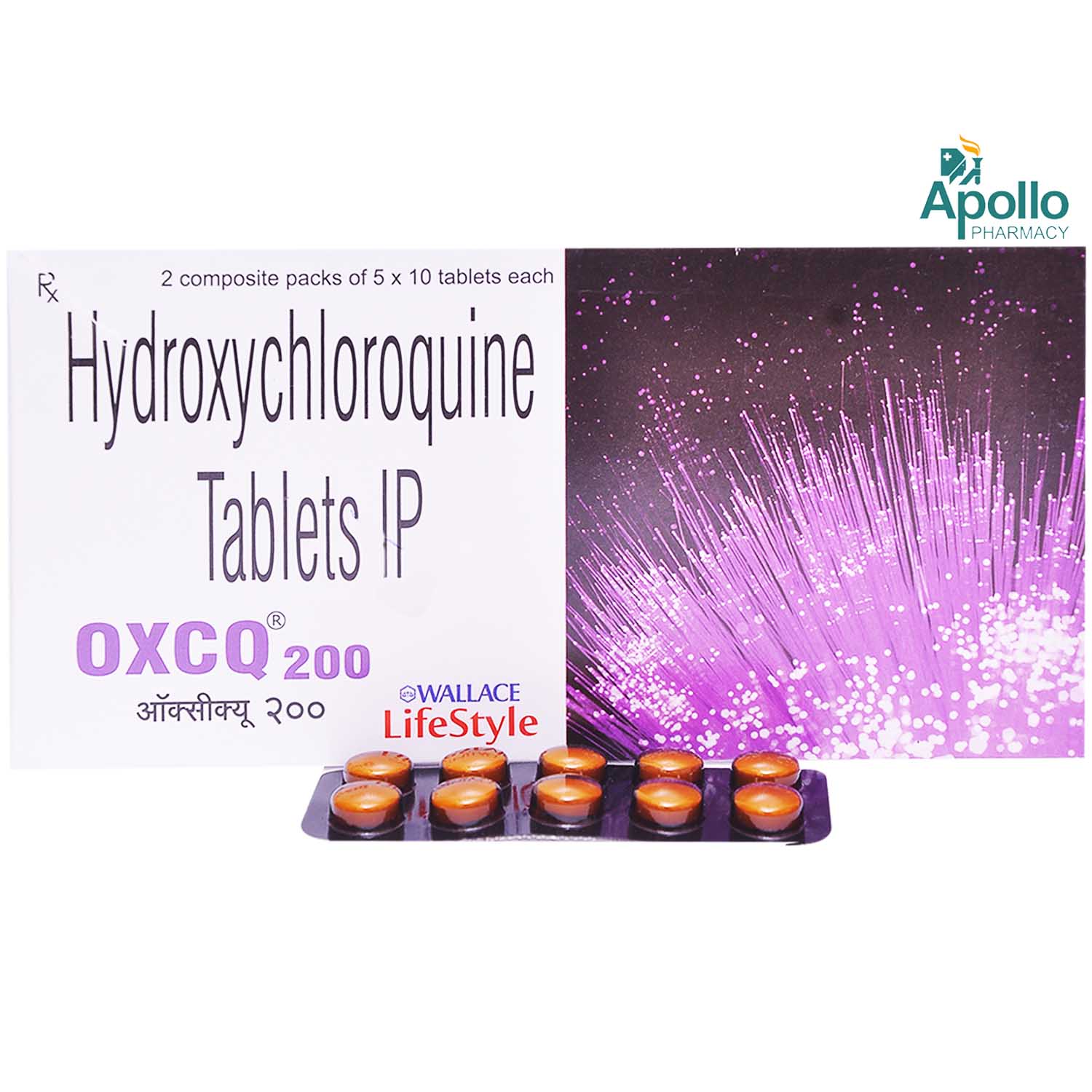
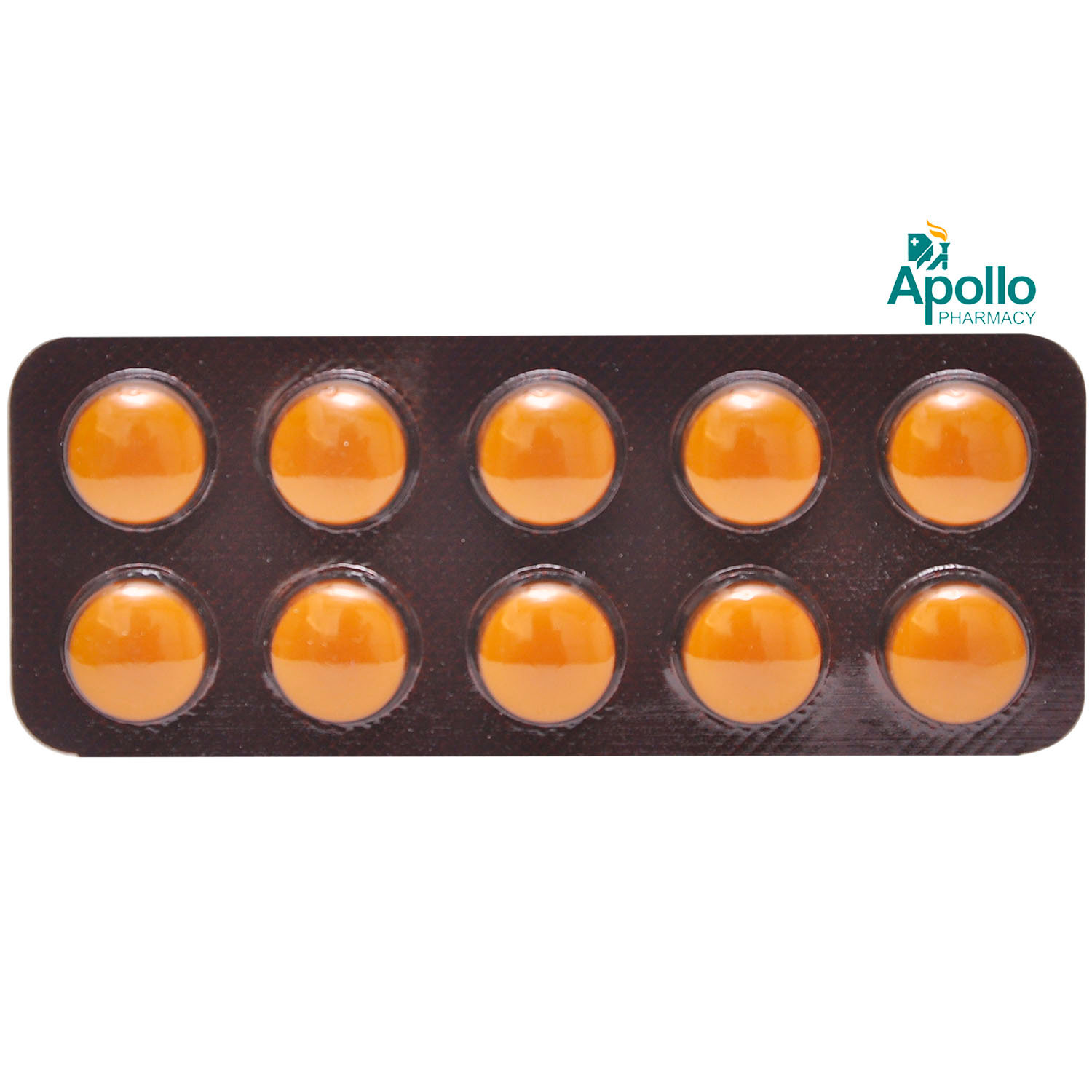
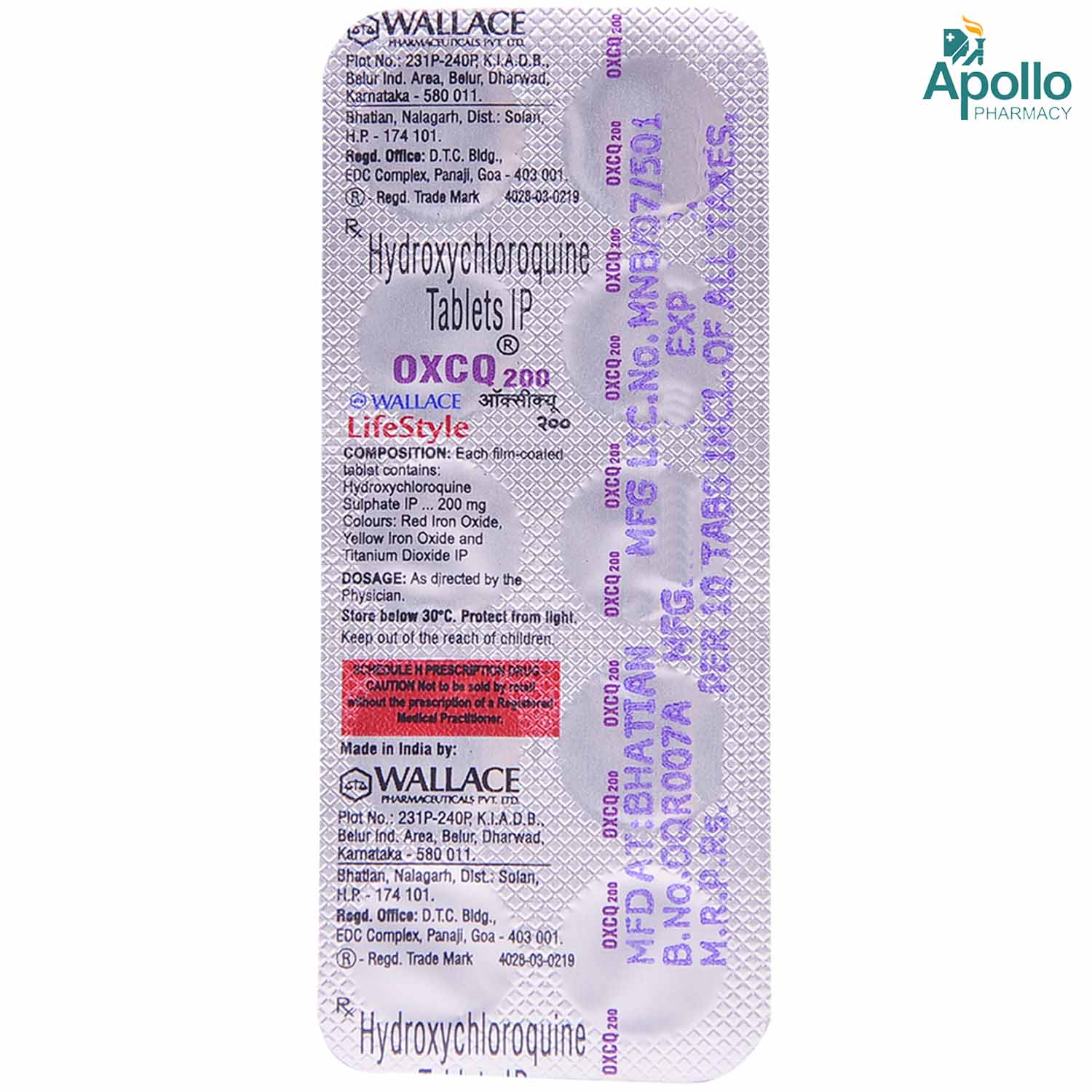







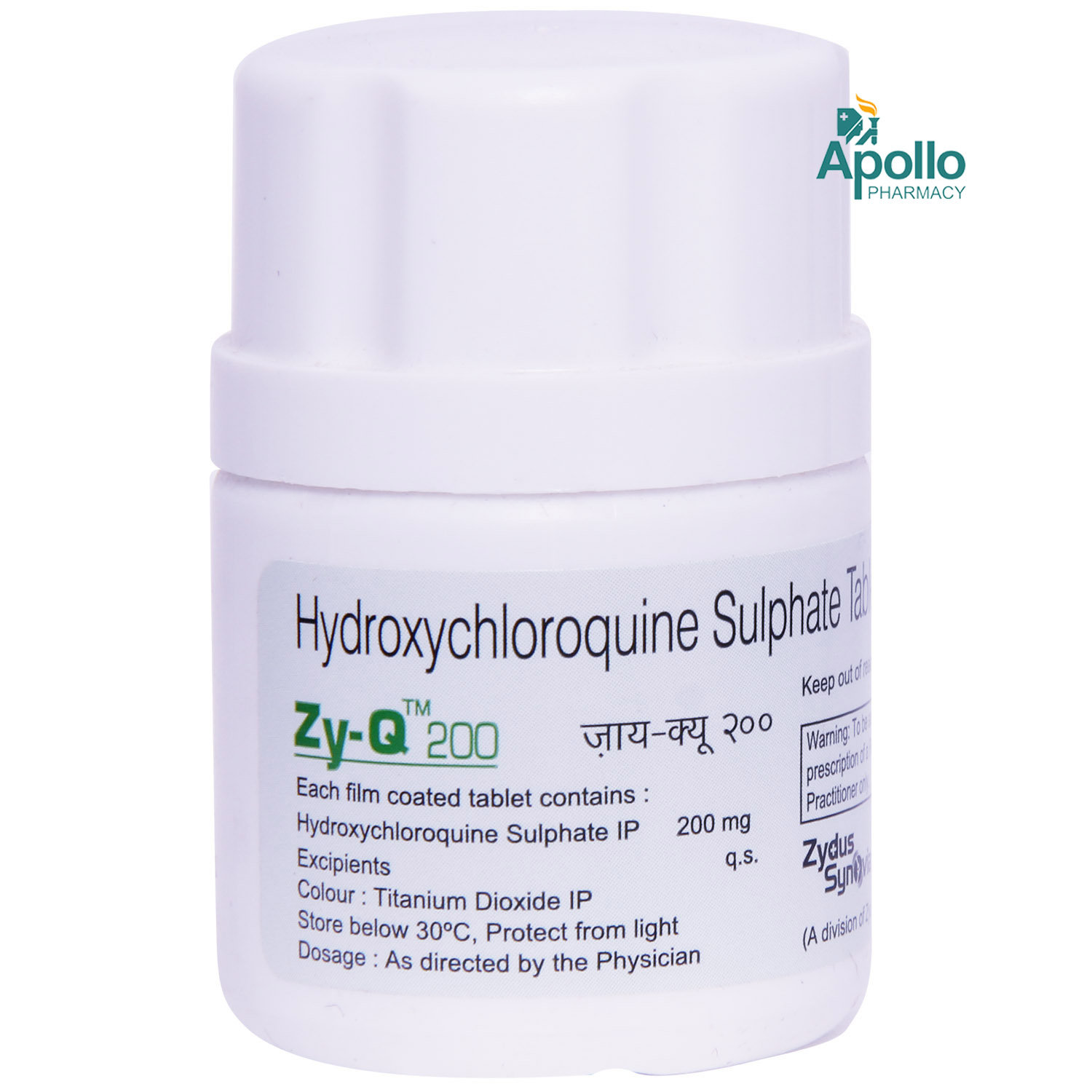
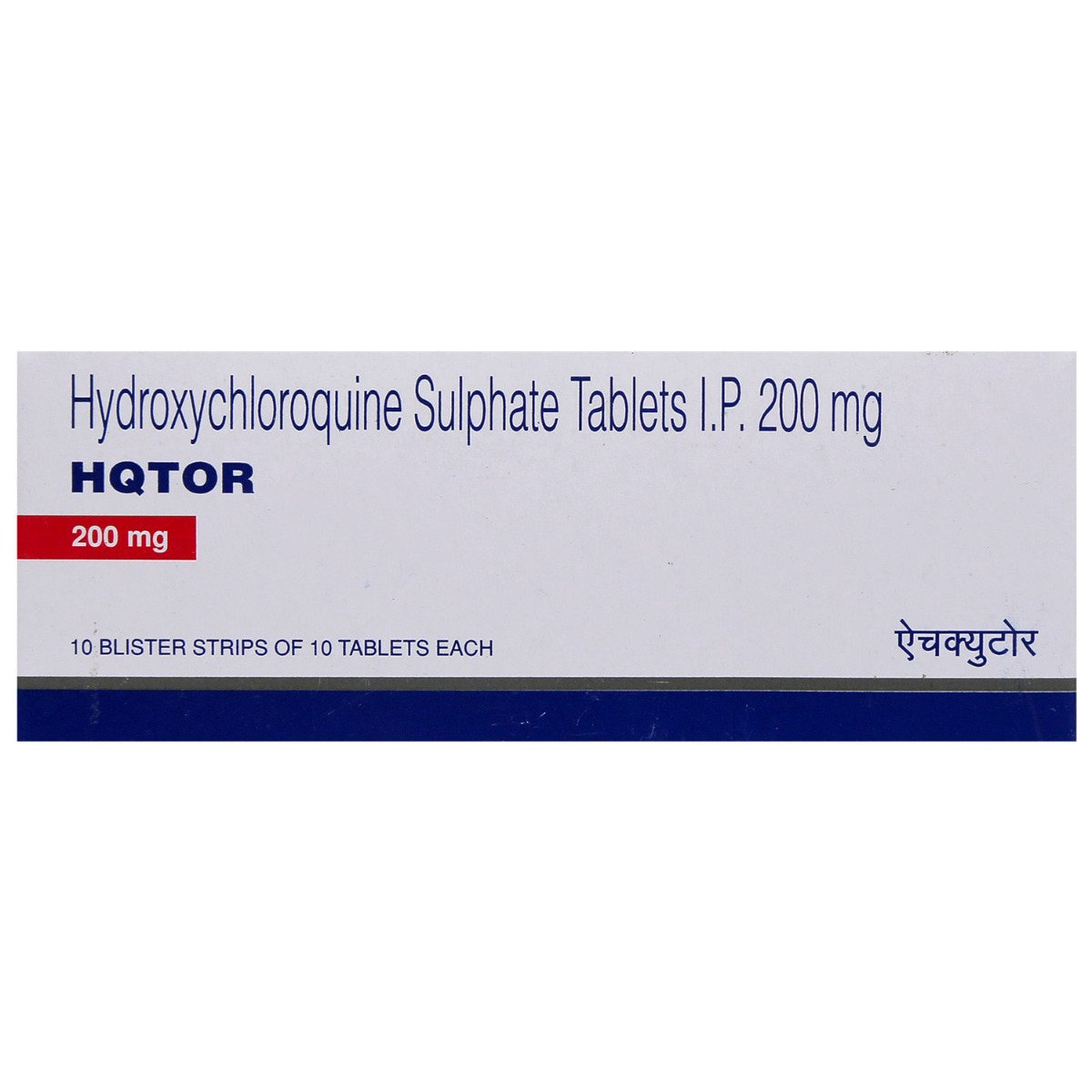
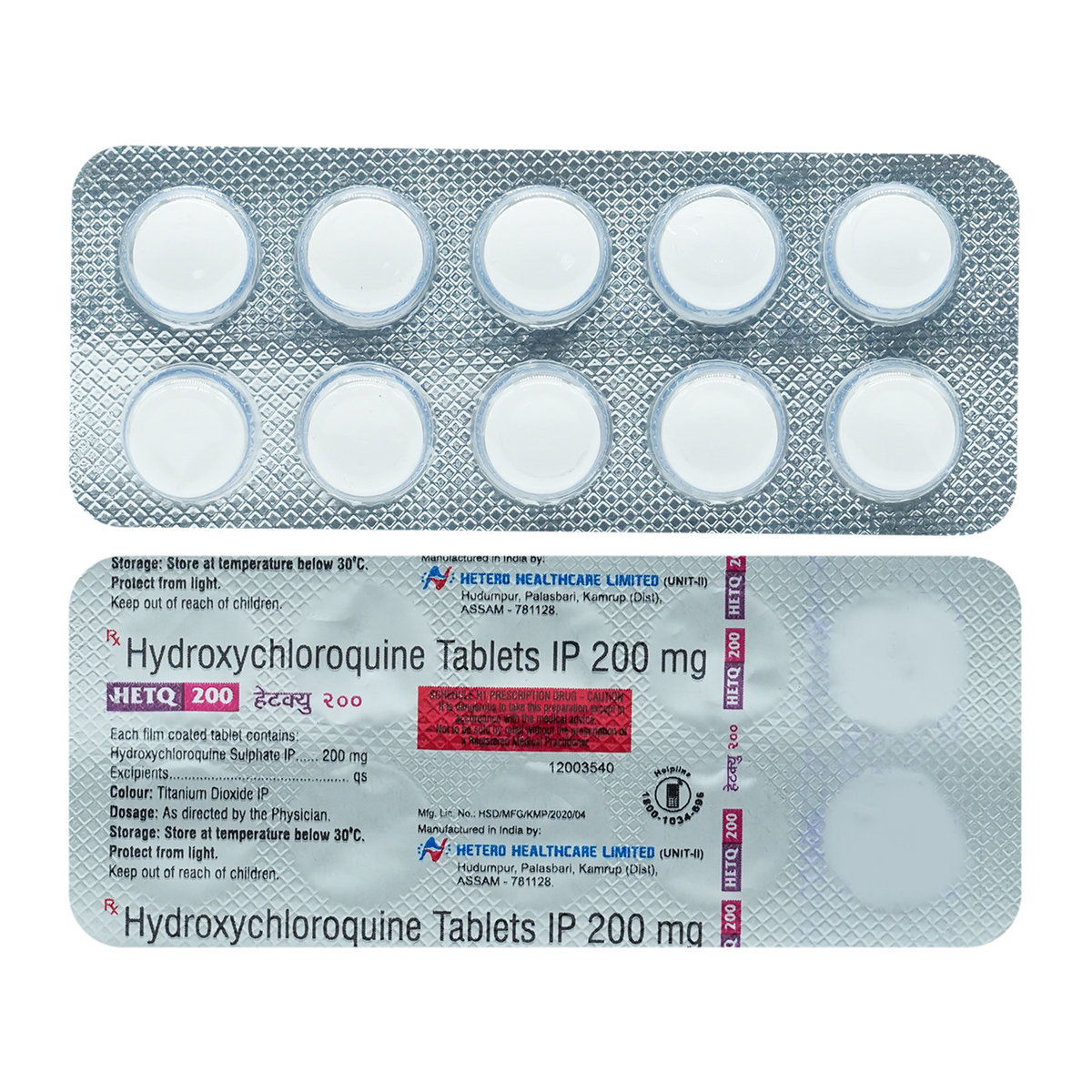
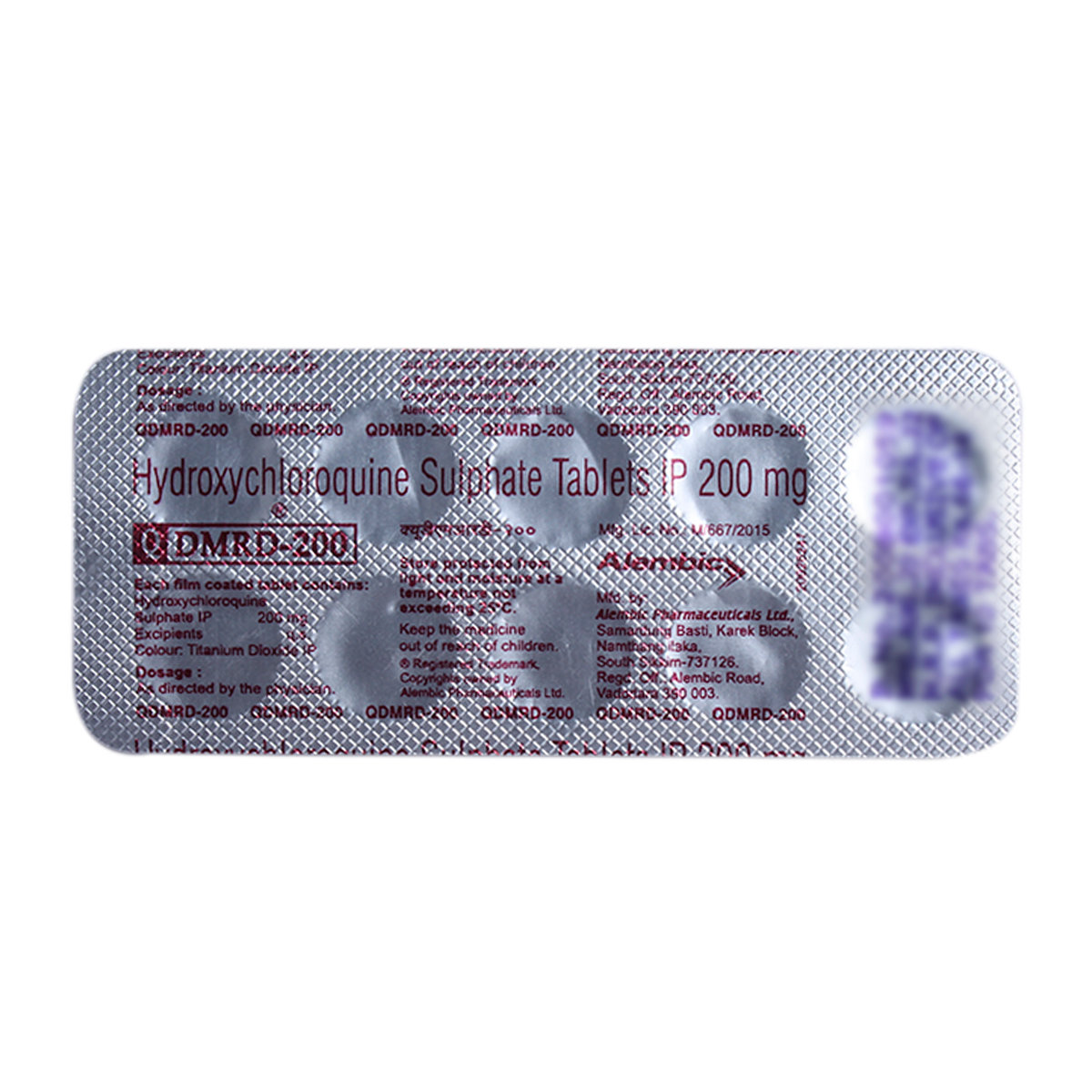

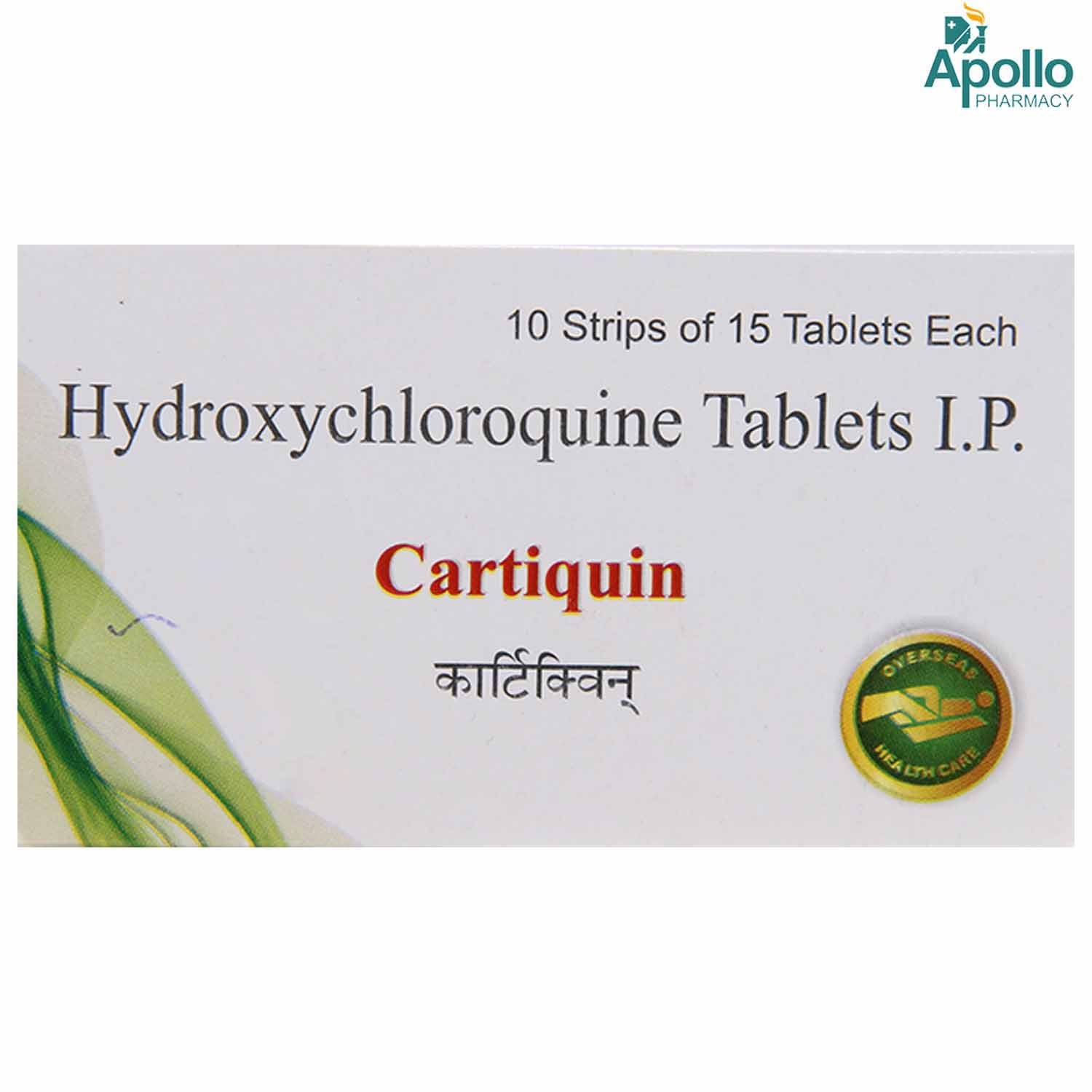
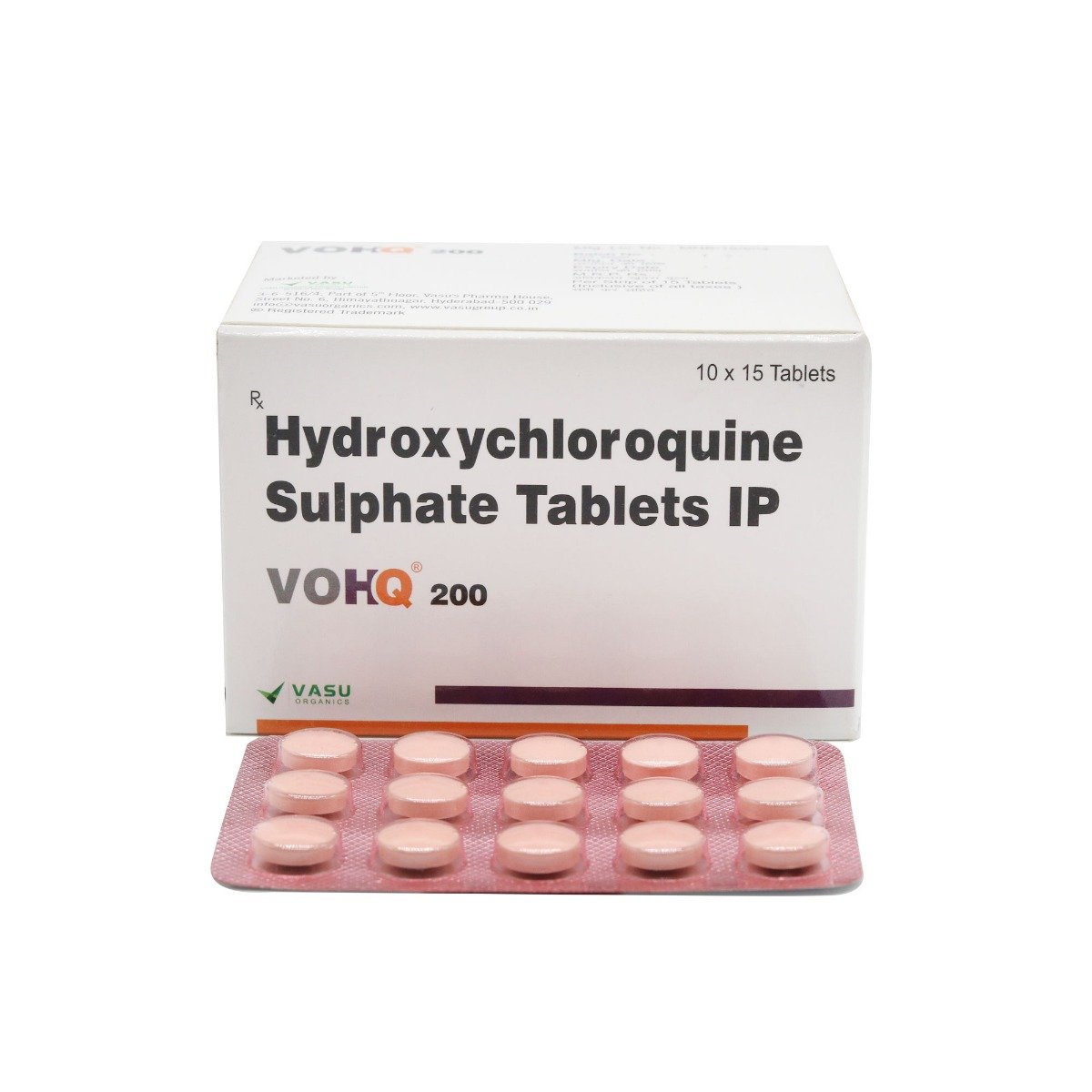
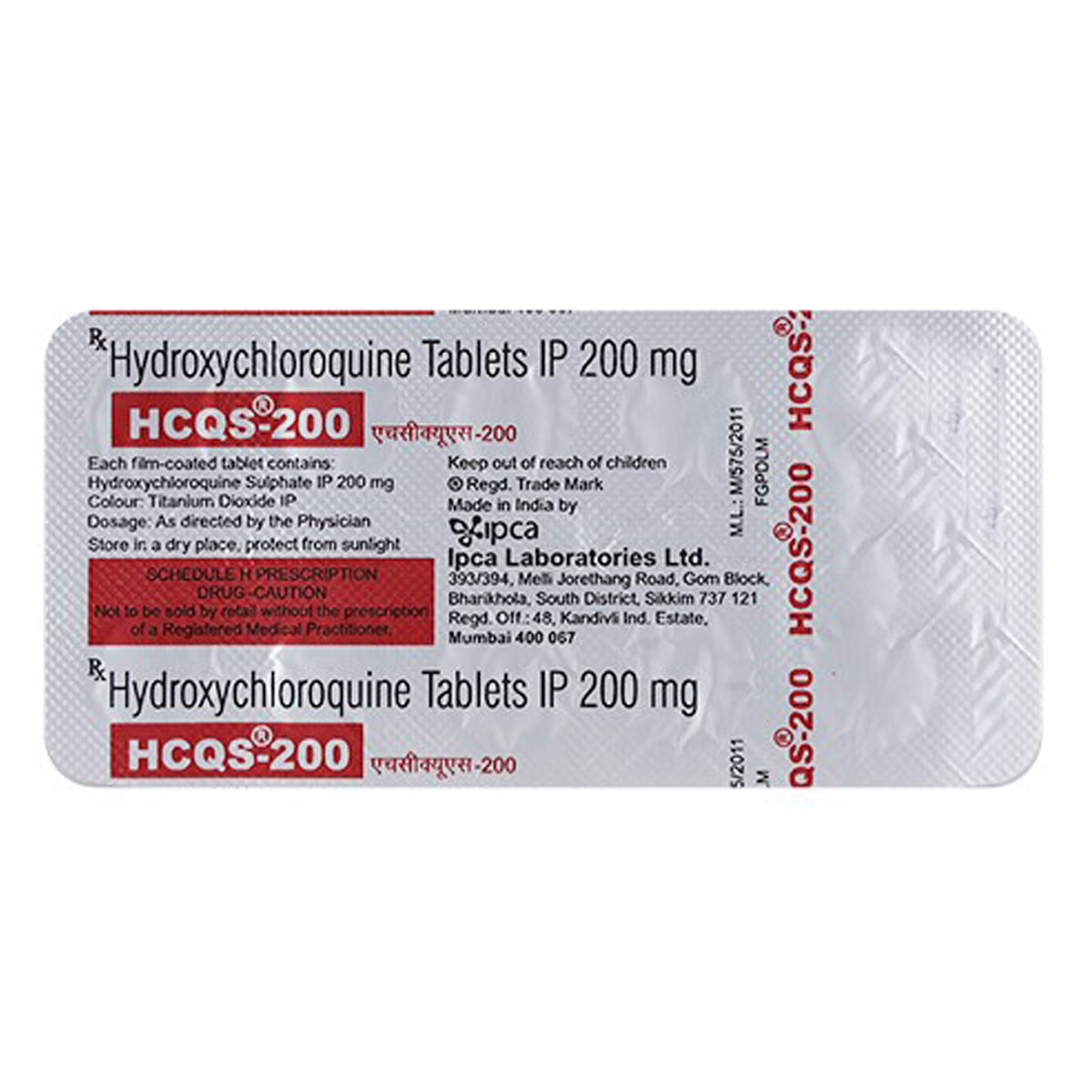
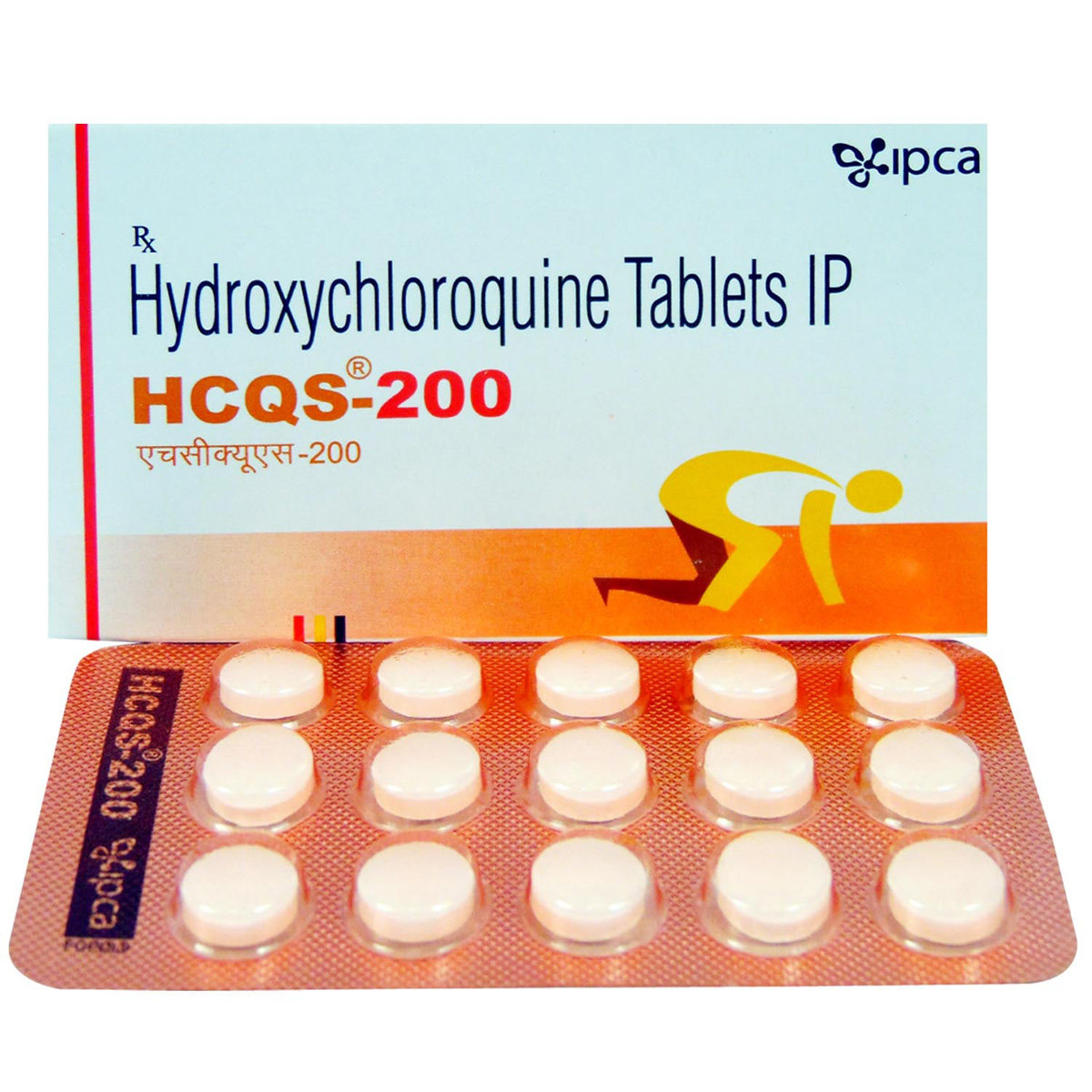


_0.jpg?tr=q-85)
